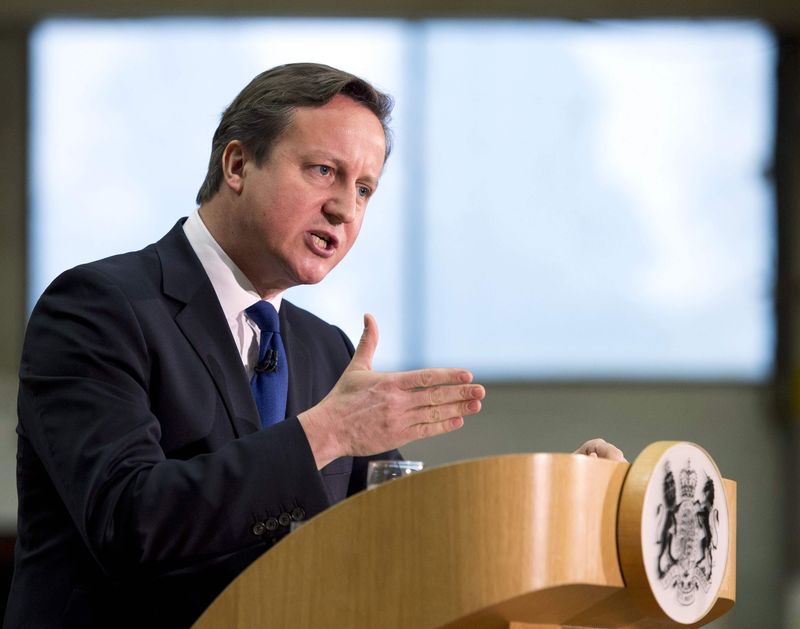LONDON (Reuters) - Britain will allow Northern Ireland to set its own level of corporation tax in a move which could help Prime Minister David Cameron to hold on to power after May's national election, the Financial Times reported on Tuesday.
Northern Ireland shares mainland Britain's 21 percent corporate tax rate, much higher than a 12.5 percent rate across the border in Ireland which has helped the country become one of the largest recipients of U.S. foreign direct investment.
The FT said Chancellor George Osborne would support devolving corporate tax to the province in a half-yearly budget statement on Wednesday although the move would be unlikely to take effect until after May's national election.
Northern Ireland has lobbied London to allow it to cut its corporate tax rate to better compete for jobs with Dublin and any such move is likely to please the Democratic Unionist Party (DUP), which leads the province's devolved government.
Opinion polls have mostly shown Prime Minister David Cameron's Conservative Party narrowly behind the opposition Labour party, making the DUP, which holds eight of the 650 seats in parliament, potential allies.
Such a devolution of power could further strain the union between the four nations of the United Kingdom which avoided a breakup in September when Scotland voted against independence.

Last week Britain's main political parties agreed to further dismantle its highly centralised system of government by striking a deal to grant Scotland more powers, including the ability to set income tax. It stopped short of allowing Scotland to vary corporate tax.
(Reporting By Costas Pitas; editing by William Schomberg)